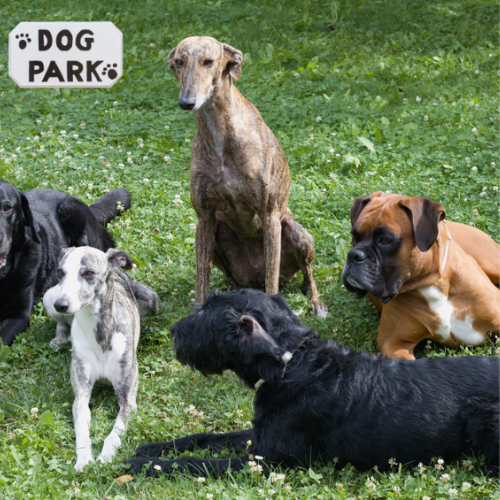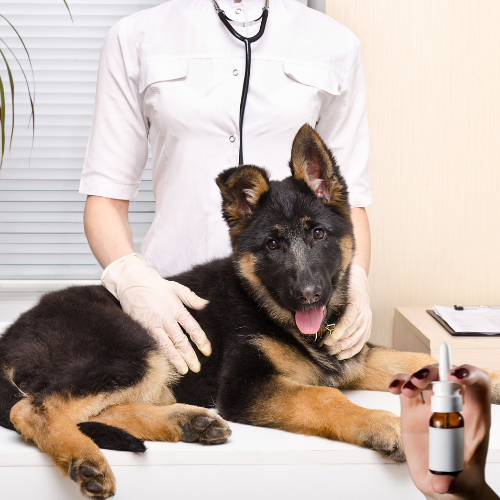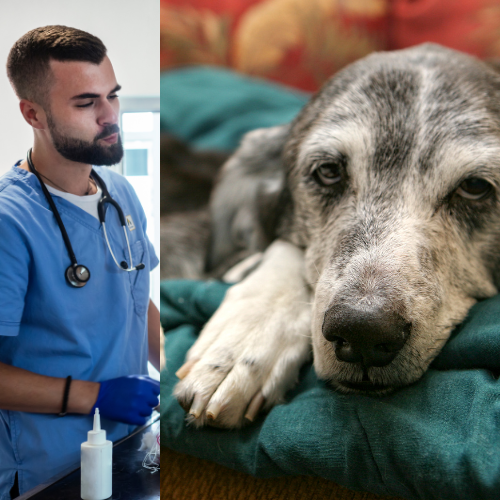Bordetella bronchiseptica is a bacterium that causes canine infectious respiratory disease complex, often referred to as “kennel cough.” It is a highly contagious disease in dogs. It can also be referred to as an upper respiratory infection or infectious tracheobronchitis. However, Bordetella bronchiseptica is not the only thing that causes kennel cough; however, it’s the most common cause.
A dog living or playing in an area that has a lot of dogs, such as a dog park or doggy daycare, is more at risk of catching kennel cough. The Groomer is another place where dogs commonly contract Bordetella bronchiseptica.
When you board a dog, the boarding facility will most likely require vaccination against Bordetella bronchiseptica.
Understanding the Bordetella Bronchiseptica Vaccine: Cause and History
A dog catches the Bordetella bronchiseptica bacterium by breathing in particles. Once the particles enter the respiratory tract, they can cause inflammation in the voice box or windpipe. In certain situations, dogs are at a higher risk of catching the diseases caused by Bordetella, including:
- Colder temperatures
- Staying in poorly ventilated areas
- Stress
- Exposure to smoke or dust

Dog Parks
Signs and Symptoms of Bordetella Brachioseptica
The main symptom of Bordetella is a hoarse cough that sounds similar to a honking goose or a reverse sneeze. Your dog may also exhibit other symptoms, including eye discharge, runny nose, fever, and having less of an appetite.
Bordetella Brachioseptica Treatment
In most cases, your dog will recover from Bordetella without treatment. However, your vet can prescribe antibiotics to help speed recovery.
Vaccination for Bordetella Bronchiseptica
The Bordetella bronchiseptica vaccine protects dogs against contracting the disease caused by the Bordetella bacterium. It can be administered intranasally or subcutaneously. Some boarding facilities and hospitals recommend giving dogs the Bordetella vaccine every six months.
Training classes, dog shows, boarding facilities, dog parks and doggy daycare places often require you to show proof of vaccination for Bordetella.

Nasal Vaccines
Types of Bordetella Bronchiseptica Vaccine
Veterinarians offer several types of the Bordetella vaccine, including:
- Two intranasal vaccines combined with the Adenovirus and parainfluenza vaccines
- Four intranasal vaccines combined with the parainfluenza vaccine
- One Bordetella-only oral vaccine
- One Bordetella-only intranasal vaccine
- One Bordetella-only injectible vaccine.
Because the Adenovirus vaccine provides immunity for up to seven years and the parainfluenza vaccine provides immunity for at least three years (sometimes more), you should request the Bordetella-only vaccine if it is required for doggy daycare or other public places.
The requesting organization may request proof that your dog is immune to Adenovirus or parainfluenza. You can provide titers for that or show literature showing these vaccines last longer than a year. However, because many veterinarians insist on yearly vaccinations, some organizations may not accept the research.
Choosing the Appropriate Method of Delivery for the Bordetella Bronchiseptica Vaccine
According to Dr. Jean Dodds, the intranasal and oral Bordetella vaccines secrete an immune protein, alpha-interferon, that provides cross-protection against other viruses that can cause kennel cough, while the injectible does not induce the immune protein.
Ingredients in the Bordetella Bronchiseptica Vaccine
The Nobivac Bordetella bronchiseptica vaccine (injectible) is a freeze-dried live vaccine. It contains:
- A minimum of 106.3 cfu and a maximum of 107.3 cfu Bordetella bronchiseptica bacterium
- Hydrolyzed gelatin (stabilizer)
- NZ Amine (stabilizer)
- Sorbitol (stabilizer)
- Na2HPO412H2O (buffer)
- NaCL (isotonicity)
- Na2HPO42H2o (buffer)
- KH2PO4 (buffer)
It also uses a solvent of water for injection.
Side Effects and Risks of Bordetella Bacteriseptica Vaccinations
According to Shoreland Animal Hospital, you should consider certain risks of the Bordetella bronchiseptica vaccine for dogs who are currently sick, immunocompromised, pregnant or who have had a past reaction to the vaccine.
While side effects can be mild and short-lived, they do happen. The most common side effects are lethargy, discomfort, malaise, and mild fever, which are caused by your dog’s immune system reacting to the vaccine.
Lumps and bumps from the injectible form of the vaccines can form near the injection site. You may feel a small, firm bump and notice redness, tenderness or stiffness in the area from skin irritation. However, any time a dog’s skin is punctured, even from a small needle puncture, there is a chance of developing an infection.
If the site swells, has a discharge or is painful, it could signify an infection that needs to be treated by your veterinarian so it doesn’t lead to more serious issues.
Another common side effect is sneezing and cold-like symptoms from the nasal spray version of the Bordetella bronchiseptica vaccination. These symptoms generally last for one to two days.
If any symptoms last longer than two days, you should contact your veterinarian. According to Carrier Veterinary Hospital, serious adverse reactions are rare, but they do require medical intervention.
In rare instances, a dog can have an anaphylactic response, including hives, a swollen face, breathing difficulties, itchiness, and diarrhea. If your dog is going to have a severe reaction, it generally happens within a few minutes to a few hours after vaccination. However, in some cases, this severe reaction can take up to 48 hours to occur. Anaphylaxis is a serious condition. Contact your veterinarian immediately.
The Bordetella vaccine, usually when mixed with the Adenovirus and flu vaccines, could cause secondary pneumonia in dogs, though it is extremely rare unless the dog has other issues, such as malnourishment or a heavy case of worms.

Sick Dog and Veterinarian
Legal Requirements: Compliance and Documentation for Dog Owners
The Bordetella bronchiseptica vaccine is not a core vaccine and is not required by law. However, it may be required by dog facilities or even local regulations.
Controversies Surrounding the Bordetella Bronchiseptica Vaccine
This section will be updated as we learn / find more information
Many veterinarians “insist” on giving the Bordetella vaccine, even if your dog may not need it, because the risk of contracting the bacterium is very low. However, it is a live virus, and some dogs may contract Bordetella from the vaccine, although it is rare.
Warnings About the Bordetella Brochiseptica Vaccine
Always know which combo vaccines your vet is giving your dog. If your dog receives the five-way DHLPP (distemper, adenovirus-2, leptospirosis, parainfluenza and parvovirus) along with a Bordetella combo shot, it is most likely getting a double dose of parainfluenza and adenovirus-2 in the same day. This could cause serious adverse reactions and even death.
FAQs About the Bordetella Brochiseptica Vaccine for Dogs
Dogs can contract Bordetella when they inhale secretions from an infected dog. They can also contract Bordetella by using dog bowls, toys and other objects used by an infected dog. Dogs are at a higher risk of contracting Bordetella in kennels, animal shelters and other places where there are many dogs in close proximity.

